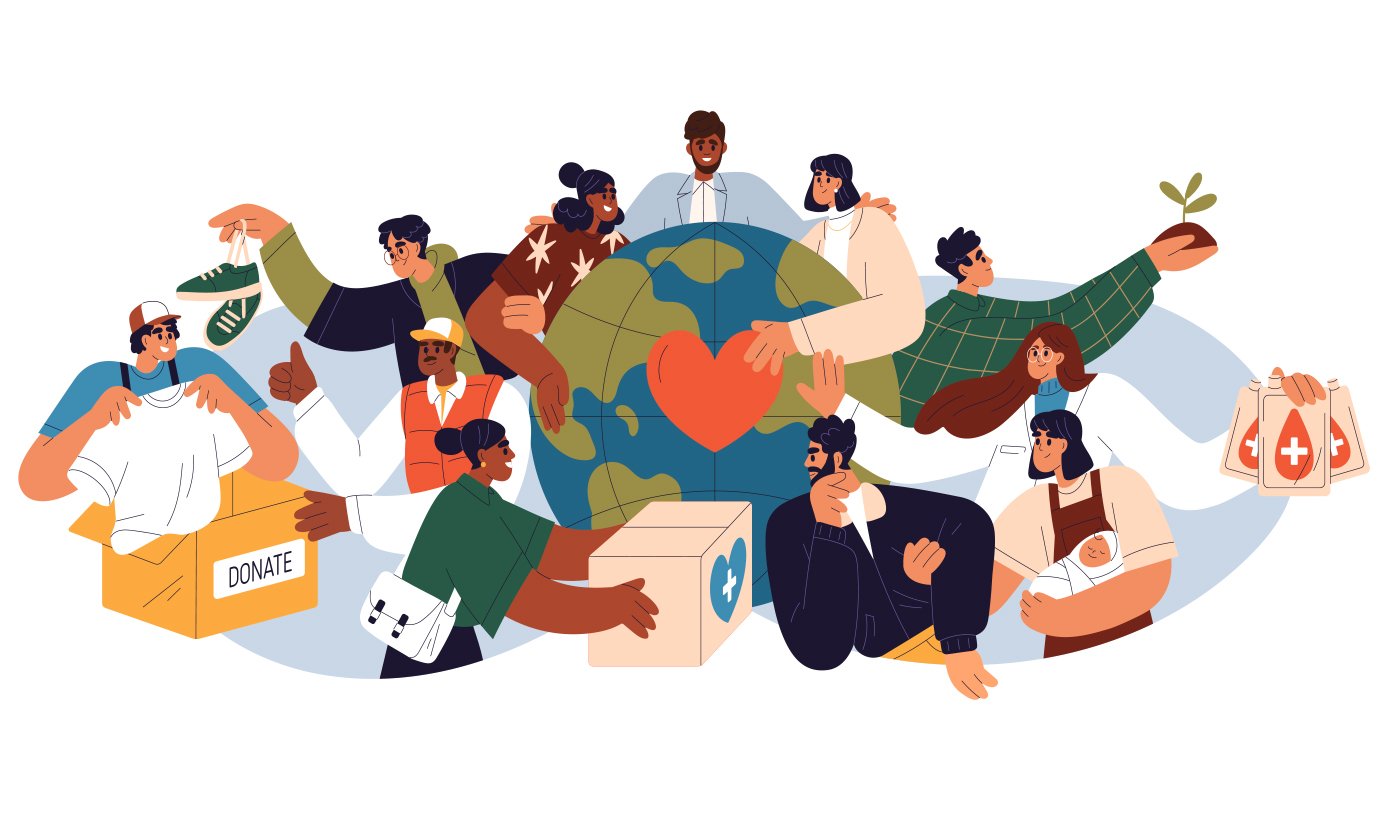Remarkably the internet works

This week the annual UN conference for tech, the Internet Governance Forum, is kicking off in Riyadh, Saudi Arabia. I'm participating online for the meeting sessions.
But first, read about why some organizations and individuals like me aren't attending in person: https://www.techpolicy.press/who-wins-from-the-igf-not-those-locked-up-for-speaking-out
And for the two sessions you can follow online or watch the recordings later, I'm speaking about:
- Hosted by ICANN: The Future of the Internet is Built on Open Global Standards
- Hosted by the FBI: Ensuring the online coexistence of human rights and child safety
See you there (online)!
Space Links
- Splintering in Space: Russia announced its own Starlink by 2030 https://t.me/roskomsvoboda/13147
- Space race contender Amazon https://www.aboutamazon.com/news/innovation-at-amazon/what-is-amazon-project-kuiper
- Applications are open for the Bertelsmann Foundation fellowship on the geopolitics of space https://www.linkedin.com/posts/chloe-alexandra-laird-_bff-call-for-applications-2025-activity-7272616751891111936-Nz7I
Regular terrestrial links
- Alternative hosting provider Greenhost "acquired by" investment company TSG. https://greenhost.net/blog/2024/12/11/greenhost-joins-forces-with-the-sharing-group-tsg
- OONI’s 2024 report on censorship in Russia is out. https://ooni.org/post/2024-russia-report
- Encryption for Everyone! Let's Encrypt's 2024 annual report is out. https://www.abetterinternet.org/documents/2024-ISRG-Annual-Report.pdf
- Freedom House connects its work on transnational repression to the risks posed by the UN's Cybercrime Treaty. https://freedomhouse.org/article/authoritarians-are-hijacking-global-tech-cooperation-undermine-human-rights
- CDT reports on the challenges Livestreaming poses inherent technical challenges for firms seeking to intervene responsibly against child sexual abuse material. https://cdt.org/insights/real-time-threats-analysis-of-trust-and-safety-practices-for-child-sexual-exploitation-and-abuse-csea-prevention-on-livestreaming-platforms
- Privacy International report on how platforms like Twitch and OnlyFans put their content creators at privacy risk: https://privacyinternational.org/campaigns/content-creators-working-algorithm
- Access Now: "UN Security Council needs to step up and address online harms to human rights" https://www.accessnow.org/un-security-council-digital-rights
- Integrating policy, research and technical standards in gender approaches to cybersecurity: Key takeaways from a recent APC-hosted roundtable. https://www.apc.org/en/news/integrating-policy-research-and-technical-standards-gender-approaches-cybersecurity-key
- Freedom of the Press Foundation checklist for journalists heading into the year 2025: https://freedom.press/digisec/blog/journalists-digital-security-checklist
- Send in your comments before 20 December to the EU about their approach to internet governance ahead of the WSIS+20 review process: https://ec.europa.eu/eusurvey/runner/TargetedConsultionOnInternetGovernannce
- Apply: Postdoctoral researcher with quantitative analysis skills to work on “GEOCLOUD: The Geopolitics of Cloud Computing.” https://diesl.eu/open-position-postdoctoral-researcher-erc-geocloud
- ICYMI: The CypherSex Project: https://www.inventati.org/cyphersex

New section: Book reviews! A portion of sales when you buy from Bluestockings.com goes to feminist infrastructure!
My keynote remarks at the Central Asia IGF in Bishkek
I was unfortunately not able to deliver my remarks in person, but was grateful for the invitation to present remotely last week. I want to also address that Kyrgyzstan received this year’s sharpest downgrade in the 2024 Freedom on the Net report due to government efforts to silence digital media and suppress online organizing. However the event was an occasion for the country to platform it's Digital Code, a comprehensive legal instrument for the digital economy and a pathway to support human rights.
As a human rights advocate and technologist I spend a lot of time talking about how the internet works and why that matters. How digital technologies are designed, developed and deployed impact our lives, pure and simple. The internet has uniquely changed the relationships we have with one another, and the relationships between people and institutions. Digital technologies are unique because of the way that they're governed. Today’s technology is just as much about the cooperation required for a global communication system, as it is about the bits and the bytes.
If the internet is humanity’s greatest innovation, the internet’s governance structure is our most advanced form of democracy: Multistakeholderism. The power struggle between governments and corporations results in disadvantages to people and society. Control and centralization of power are also bad for the internet as a technology.
Today we hear a lot of talk about internet “fragmentation,” which is antithetical to the way the internet is designed. Fragmentation is an easy concept to grasp because we encounter it in the real world of border control, one-way information transmissions, and bureaucracies that regulate every other aspect of our lives. It would follow that internet connectivity will trend towards national sovereignty. However fragmentation presupposes a different technology than that of the decentralized internet. The quality of the internet does not rely on our control versus their control; the internet’s promise depends on control versus not control. The internet’s free flow of information and access to digital resources for everyone is the default setting. Fragmentation, while largely a myth and certainly not inevitable, is intentional disconnection by degree. What is worse is that smaller, rural communities already at a disadvantage will have unequal access to technology due to such imposed limitations. There are growing concerns over the politicization of digital spaces which also can censor, which shrinks civic space, and which threatens the rights of citizens.
The antidote here is that states need to be involved in the global governance of the internet. The internet is not only connected, as a default, it is also cooperative as a default. The internet requires every single country on Earth to adopt the same kinds of standards to implement the same technologies. This happens through private sector incentives and is sustained through economic growth. Every country has managed to achieve this, simultaneously and together, and our collective fates depend on the health and sustainability and interconnection of the internet, which we will continue to do together. It also depends on states holding massive multinationals accountable for the ways they have centralized internet technology for their own gain. Centralization is a form of fragmentation that can also be solved with more, not less, stakeholder engagement in internet governance.
I'm a member of civil society having worked for nonprofit organizations my entire career as a technologist. From this vantage point, I have had the pleasure of working across a wide landscape of partnerships. The role of governments cannot be understated. Countries have obligations and responsibilities that are very different from all of the other stakeholder groups. We understand meaningful multistakeholder governance is a challenging task. There are at times competing interests between corporations, foreign governments and other organized stakeholders groups.
Human rights obligations are placed on countries. It is the private sector who have responsibilities to human rights. These mechanisms are imperfect, yet the global governance of the internet has meant that civil society, academia and the technical community have a shared platform to raise up humanity’s most difficult issues as inequality and conflict can be exacerbated in the digital age. We witness irregular regulation of digital technology around the world and rely on a variation of standards, it leads to ambiguous and localized practices, which can be exploitative for the vulnerable, yet the internet itself continues to work.
There are four areas of global internet governance that require the leadership of states:
1. One is around censorship and shutdowns. Only states have the power to completely shut down connectivity. Ending this censorship on a massive scale requires states to exercise restraint and to define global norms and agreements to keep the internet connected at all times.
2. The second is access to the internet. Extending the internet further from here will not be solved by the market. Governments must step in to broaden access and do so cooperatively with other stakeholder groups, in partnership with other states, and with diverse business structures like community-ownership and cooperatives.
3. The third is weapons and war. Conflict is not in the purview of the private sector, yet they readily provide the tools. The way that digital technologies are implicated now in almost all of the world’s conflicts does not get the attention it really deserves. States are decades behind in achieving wide consensus on the terms of conflict in the digital age.
4. Lastly, we don't talk enough about what it means to be a human being in today’s digital world. To be always online, where most if not every interaction is intermediated by the internet, puts us at great risk. States must recognize that digitalization must be done in a way that is private and rights-respecting and must require the use of encryption. It should be unequivocally accepted that people need to be able to have conversations with one another that the State cannot hear. If we can accept this limitation of widespread digitalization, that would indicate a willingness to put people, not the State, at the centre of this transformative time for humanity.
The message I want to leave you with is that the internet is working. The internet itself and the way that it is being governed remains steadfast. Even with new and more regulatory regimes, such as the Digital Code, continued participation in shaping the internet for all at a global level can only strengthen it, extend its benefits and ensure everyone can connect. Take the massive rivalries between States, including outright war, and the internet still works. Allies and enemies– China, Russia, the US– sit at the table to design and develop global internet standards. When geopolitics fragment, the internet’s decentralized design and global governance mechanisms endure.
I want to thank the organizers for the invitation to speak today, and commend the governments in Central Asia who have taken on the task to implement best practice in digital law; to recognize that the internet and freedom of speech on the internet is a part of our fundamental freedoms. Digital Diplomacy in the region and beyond is crucial. Engaging in technical standards setting is fundamental.


Comments ()